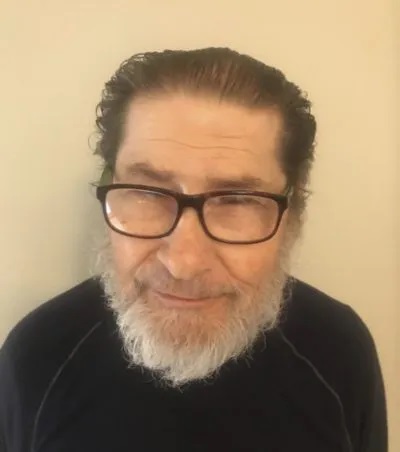Conversations with Michael Eigen
I am grateful to Dr Aner Govrin for these conversations and supervisions. His original plan, as I remember it, was to create a book of interviews of various American analysts. But once he came to my office and we started talking we just continued. We had never met before and it took awhile to get used to each other, but it wasn't long before I appreciated his probing sensitivity and value it even more today.
Dr Govrin organized our discussions into three main sections: on my thought, life and our supervisions. Within these sections are many topics of interest for the general reader and specialist. Those who know my work will appreciate being in the workshop and seeing more of the "inner machinery" and those who do not will find a welcome introduction.
I hope, above all, that there is something in this work that you need, that it gives you something of value, that it helps uplift and challenge your spirit. My patients tell me that my writing does not sufficiently reflect how funny I am in sessions. That may be the case in this work too. But I do hope some sense of the deep psychoanalytic "fun" I've had for the past four decades comes through.
In deciding what to say in a brief introduction to this work, I find myself skipping over the sections on my life that may most interest many readers. My mind gravitates towards what most exercises me now, this moment of history. All my professional life I have written a lot about psychosis and psychosis related states. As time went on, I appreciated more and more links between personal, familial and societal madness. In my first book, The Psychotic Core, I pointed out how psychotic dynamics permeate and organize Freud's structural concepts: id as outside time, common sense, logic; ego as hallucinatory as well as anti-hallucinatory; a haywire, persecutory superego substituting destructive "moralism" (hallucinated morality) for ethics. The psyche's hallucinatory capacity is carried forward in social structures, in dreaming, falling in love, and positive or negative idealization of authority. It is as if Freud substitutes madness for sin. So much of our madness is quiet, out of sight but explodes with great force in larger group processes.
In The Psychotic Core I delineated what I felt to be a presiding structure of our time: a kind of transcendent hate-filled mental self (the heh-heh devil) occultly mocking and inciting a fusional-explosive body self. I feel that structure still holds. But something else has come to the fore or become blatantly visible, center stage: psychopathic manipulation of psychotic anxieties by people in authority. We are living in an Age of Psychopathy rather than an Age of Madness, although the former feeds off and thrives on the latter.
The theft of the USA presidential election in the year 2000 brought into focus a psychopathic lust for power that threatens the social fabric. A series of maneuvers capped by the Supreme Court stopping the vote count and handing the election to its favored party (a split vote, expressive of a split nation) was a signal that our democracy was more hallucinated than real. If the highest representative of law in the land is compromised, where does that leave the rest of society?
The rule seems to be to win any way you can and to hell with losers. What seeps down to the rest of society is not a share of the wealth, but a sense that you can or should be able to get away with anything, and if you don't you're stupid. Psychopathy (and by definition, duplicity) becomes the rule of the land, the role model, and "truth" or "honesty" is just a tool to get your way.
My interviews with Dr Govrin occurred while I was writing my book Feeling Matters, in which "Election Rape" is a chapter. There I bring out the confluence and resonance of familial and political abuse. That there is a world epidemic of suicide and child abuse, at the same time society grows more psychopathic, is no accident. Sin and madness at the top spreads to the bottom. The Bible speaks of sins of the land. Today we might speak of deep pockets of global madness, bottom and top.
As events unfolded, it became clear that corporate-governmental-military power maintain control, partly, by playing on psychotic or catastrophic dreads. If we do not go along with the program, awful things will happen. Only the corporate-governmental structure can protect us from cataclysm. Playing up the fear of weapons of mass destruction in order to justify a profitable war policy is only one instance of mass manipulation of annihilation anxiety. In one way or another this became the tone in which policy making was couched.
Hallucination works at least two ways. You can hallucinate a danger that is not present as present and you can hallucinate a danger that is really present as not present. The first strategy permeated the build-up to the Iraq war; the second strategy permeated the response to the decimation of New Orleans by hurricane Katrina (New Orleans is now being remodeled as a place for people with money; the poor who lived there are being displaced). The two modes of hallucination work hand in hand. Both manipulate mass fear in the service of power and profit for the few.
Psychopathy loosely means defective conscience. In the current case, "self-interest" is used to justify actions that maim and kill people. Insensitivity to the pain one's actions cause is part of the brew. What counts is getting to the top and staying there. A kind of bully psychology dominates, what I call hallucinating oneself as Number One, whether that self is individual, group or trans-national. Indeed, the current President of the USA says feelings are for sissies. What counts is power, action, winning. It is a brutal vision. Therapeutic emphasis on listening, patience, waiting, caring seems besides the point, silly.
Therapeutic hearing and waiting lends new meaning to the saying that the meek will inherit the earth. Someday we may catch on to self-destructive elements of our psychopathy and learn to modulate ourselves. I suspect therapy is one of the social functions that attempt to do that, potentially playing a long range role in humane evolution.
Have you ever noticed the big ears many Buddha statues have? Among the various meanings this has, I like to think it means growth in ability to hear ourselves and others, contact with ourselves and others. Perhaps by some accident the English word hear has ear in it and sounds like here. In the Bible God asks Adam, "Where are you?" And Adam replies, "Here I am." It is a phrase used by Abraham and others too: Here I am. A waking up to life, a model worth developing.
At this juncture of history, it is crucial for society to grow the response capacity needed to address our psychopathy. We must do this on smaller and larger scales and anything any of us can do on any front, whether in our office, our home, our own minds, or in the larger world, is to the good. To build response capacity needed to work with psychopathy is a pressing evolutionary edge. The quality of our physical and psychic world depends on it.
When I was a young analyst it used to be thought that you can't analyze a liar and you can't analyze a psychopath. Our picture of truth and lies is more complex now. W. R. Bion was on to this some time ago, when he noted that lying is ubiquitous. With our current knowledge one can say, if you can't analyze a liar, you can't analyze anyone, since a liar also does the analyzing. No one is exempt from psychopathy in everyday life. But when this tendency threatens the very conditions that support life, we must learn to work with it.
I don't want to give the impression that my conversations and supervisions with Dr Govrin were only about psychosis and psychopathy. They span a wide range of personal and professional topics, including spirituality, meetings with British and French analysts, psychoanalytic writing, work with trauma and many other areas that go with being alive today and difficulties we share in constituting ourselves as fully human beings. There is much at stake in what we do. The stakes were never greater.
Dr Govrin organized our discussions into three main sections: on my thought, life and our supervisions. Within these sections are many topics of interest for the general reader and specialist. Those who know my work will appreciate being in the workshop and seeing more of the "inner machinery" and those who do not will find a welcome introduction.
I hope, above all, that there is something in this work that you need, that it gives you something of value, that it helps uplift and challenge your spirit. My patients tell me that my writing does not sufficiently reflect how funny I am in sessions. That may be the case in this work too. But I do hope some sense of the deep psychoanalytic "fun" I've had for the past four decades comes through.
In deciding what to say in a brief introduction to this work, I find myself skipping over the sections on my life that may most interest many readers. My mind gravitates towards what most exercises me now, this moment of history. All my professional life I have written a lot about psychosis and psychosis related states. As time went on, I appreciated more and more links between personal, familial and societal madness. In my first book, The Psychotic Core, I pointed out how psychotic dynamics permeate and organize Freud's structural concepts: id as outside time, common sense, logic; ego as hallucinatory as well as anti-hallucinatory; a haywire, persecutory superego substituting destructive "moralism" (hallucinated morality) for ethics. The psyche's hallucinatory capacity is carried forward in social structures, in dreaming, falling in love, and positive or negative idealization of authority. It is as if Freud substitutes madness for sin. So much of our madness is quiet, out of sight but explodes with great force in larger group processes.
In The Psychotic Core I delineated what I felt to be a presiding structure of our time: a kind of transcendent hate-filled mental self (the heh-heh devil) occultly mocking and inciting a fusional-explosive body self. I feel that structure still holds. But something else has come to the fore or become blatantly visible, center stage: psychopathic manipulation of psychotic anxieties by people in authority. We are living in an Age of Psychopathy rather than an Age of Madness, although the former feeds off and thrives on the latter.
The theft of the USA presidential election in the year 2000 brought into focus a psychopathic lust for power that threatens the social fabric. A series of maneuvers capped by the Supreme Court stopping the vote count and handing the election to its favored party (a split vote, expressive of a split nation) was a signal that our democracy was more hallucinated than real. If the highest representative of law in the land is compromised, where does that leave the rest of society?
The rule seems to be to win any way you can and to hell with losers. What seeps down to the rest of society is not a share of the wealth, but a sense that you can or should be able to get away with anything, and if you don't you're stupid. Psychopathy (and by definition, duplicity) becomes the rule of the land, the role model, and "truth" or "honesty" is just a tool to get your way.
My interviews with Dr Govrin occurred while I was writing my book Feeling Matters, in which "Election Rape" is a chapter. There I bring out the confluence and resonance of familial and political abuse. That there is a world epidemic of suicide and child abuse, at the same time society grows more psychopathic, is no accident. Sin and madness at the top spreads to the bottom. The Bible speaks of sins of the land. Today we might speak of deep pockets of global madness, bottom and top.
As events unfolded, it became clear that corporate-governmental-military power maintain control, partly, by playing on psychotic or catastrophic dreads. If we do not go along with the program, awful things will happen. Only the corporate-governmental structure can protect us from cataclysm. Playing up the fear of weapons of mass destruction in order to justify a profitable war policy is only one instance of mass manipulation of annihilation anxiety. In one way or another this became the tone in which policy making was couched.
Hallucination works at least two ways. You can hallucinate a danger that is not present as present and you can hallucinate a danger that is really present as not present. The first strategy permeated the build-up to the Iraq war; the second strategy permeated the response to the decimation of New Orleans by hurricane Katrina (New Orleans is now being remodeled as a place for people with money; the poor who lived there are being displaced). The two modes of hallucination work hand in hand. Both manipulate mass fear in the service of power and profit for the few.
Psychopathy loosely means defective conscience. In the current case, "self-interest" is used to justify actions that maim and kill people. Insensitivity to the pain one's actions cause is part of the brew. What counts is getting to the top and staying there. A kind of bully psychology dominates, what I call hallucinating oneself as Number One, whether that self is individual, group or trans-national. Indeed, the current President of the USA says feelings are for sissies. What counts is power, action, winning. It is a brutal vision. Therapeutic emphasis on listening, patience, waiting, caring seems besides the point, silly.
Therapeutic hearing and waiting lends new meaning to the saying that the meek will inherit the earth. Someday we may catch on to self-destructive elements of our psychopathy and learn to modulate ourselves. I suspect therapy is one of the social functions that attempt to do that, potentially playing a long range role in humane evolution.
Have you ever noticed the big ears many Buddha statues have? Among the various meanings this has, I like to think it means growth in ability to hear ourselves and others, contact with ourselves and others. Perhaps by some accident the English word hear has ear in it and sounds like here. In the Bible God asks Adam, "Where are you?" And Adam replies, "Here I am." It is a phrase used by Abraham and others too: Here I am. A waking up to life, a model worth developing.
At this juncture of history, it is crucial for society to grow the response capacity needed to address our psychopathy. We must do this on smaller and larger scales and anything any of us can do on any front, whether in our office, our home, our own minds, or in the larger world, is to the good. To build response capacity needed to work with psychopathy is a pressing evolutionary edge. The quality of our physical and psychic world depends on it.
When I was a young analyst it used to be thought that you can't analyze a liar and you can't analyze a psychopath. Our picture of truth and lies is more complex now. W. R. Bion was on to this some time ago, when he noted that lying is ubiquitous. With our current knowledge one can say, if you can't analyze a liar, you can't analyze anyone, since a liar also does the analyzing. No one is exempt from psychopathy in everyday life. But when this tendency threatens the very conditions that support life, we must learn to work with it.
I don't want to give the impression that my conversations and supervisions with Dr Govrin were only about psychosis and psychopathy. They span a wide range of personal and professional topics, including spirituality, meetings with British and French analysts, psychoanalytic writing, work with trauma and many other areas that go with being alive today and difficulties we share in constituting ourselves as fully human beings. There is much at stake in what we do. The stakes were never greater.
By Michael Eigen

View more details for Michael Eigen
Toxic Nourishment
- Paperback
The Sensitive Self
- Paperback
Faith
- Paperback
The Electrified Tightrope
- Paperback
Kabbalah and Psychoanalysis
- Paperback
Contact with the Depths
- Paperback
Emotional Storm
- Paperback
Rage
- Paperback












